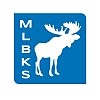No matter how careful people are doing their entries in PCLaw, we are all still human, and mistakes do happen.
I have stressed in the past, that general retainers should be transferred to trust, as is required by the LSUC. But what about the situation where you discover a general retainer amount but the same amount or more is owing to you in Accounts Receivable? There is nothing technically wrong as far as the LSUC is concerned, as your billing invoices total matches or exceeds your receipts total from this same client. The receipts, for whatever reason, have just not been correctly entered as against your receivables.
To correct this situation:
1. Enter a General Retainer receipt using today’s date, but for a negative amount equal to the general retainer held by this client. This will remove the general retainer balance.
2. Enter a Receive Payment, using the same date and the same amount, only this time with a positive value. This will be applied to the receivable balance owing.
When doing your bank reconciliation, the positive and negative receipts will cancel each other out, and the bank will balance.
You may also find two A/R invoices offsetting each other (+$500 fees, -$500 discount). Even though the net owing is zero, the program reads these invoices as outstanding, and you cannot archive this matter. Tools – Mark Offsetting A/R as Paid – enter matter number - OK.
As always, I invite your comments and suggestions for future post topics. Next week – Numbering Variations.
Clyde

MLBKS Ontario PCLaw Bookkeeping: A bi-weekly blog written especially for small firms and solo-lawyers practicing in Ontario, and their bookkeepers. While some topics will be of general interest, the target audience are those who use PCLaw on a regular basis. The focus will be the practical use of PCLaw, especially in relation to the Law Society of Upper Canada's Bookkeeping Guide, trust transactions, and spot audits. Your host: Clyde McDonald - Muskoka Legal Bookkeeping Services
No comments:
Post a Comment
I welcome any comments or feedback.
Do you have a question? Do you have a topic for a future article?